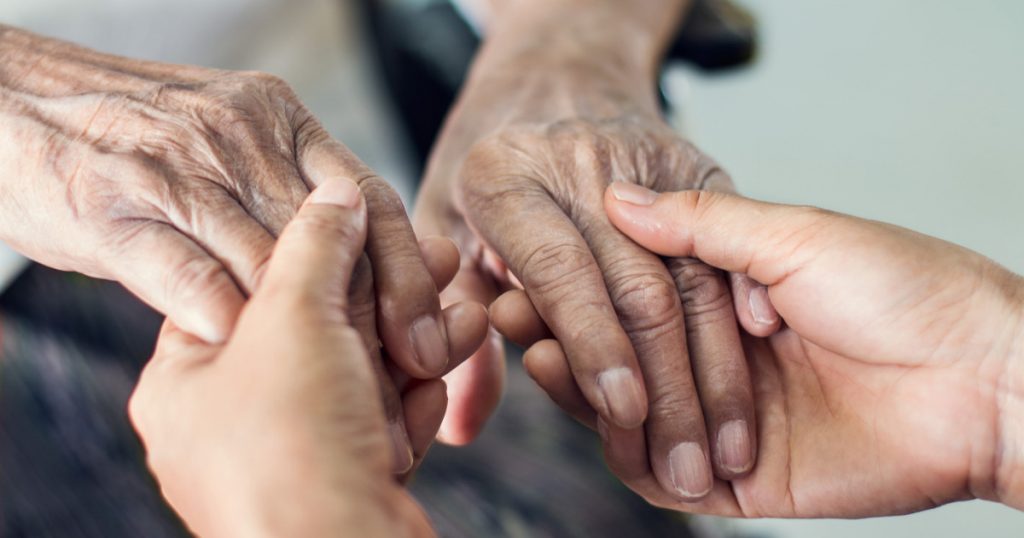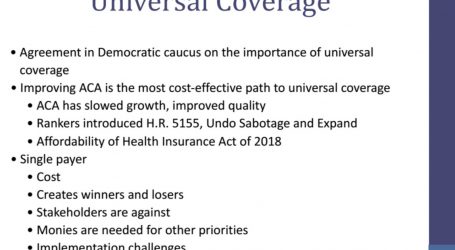Home Care Workers Are Underpaid, Uninsured, and on the Front Lines of Fighting Coronavirus
ipopba/Getty
Etelbina Hauser has a tough job. The 57-year-old immigrant from Honduras and grandmother of 12 makes minimum wage cleaning houses and taking care of a 93-year-old client with dementia in Seattle. But recently, when a nursing home offered her better pay and benefits caring for a dozen residents as a certified nursing assistant, Hauser turned it down. She was too afraid of catching the new coronavirus. “If I go to a job and I carry the virus, then I infect someone who I’m supposed to be taking care of,” Hauser says in Spanish, through an interpreter. “Likewise, if I go to take care of someone, and they have the virus, then I have the virus as well.”
The outbreak of coronavirus infections in the Seattle area, including at least seven fatalities linked to the Life Care Center nursing home, has drawn attention to the vulnerability of the people who live and work in nursing homes, where close quarters, frequent visitors, and rotating staff make it harder to stop the virus from spreading. But there’s another weak spot in the health care system for older adults and people with long-term health conditions: the home care industry.
Home health and personal care aides like Hauser provide clinical care and help with daily living activities to millions of Americans. Experts warn that the poor working conditions experienced by roughly 2.3 million home care workers—mostly women, people of color, and immigrants—could leave both them and their already at-risk patients more vulnerable to the outbreak.
People over 60 and those with medical conditions like diabetes, cardiovascular disease, and cancer are at highest risk of becoming seriously ill or dying a result of COVID-19, the disease caused by the new coronavirus, according to the World Health Organization. Because the virus is easily transmitted between people in close contact, public health experts are urging people who feel sick to stay home and self-isolate if they have symptoms. But for many home health aides who care for the people most vulnerable to COVID-19, remote work is impossible and paid sick days are an unaffordable luxury.
“I can’t sit in front of a computer and do my work. Who’s going to pay me? I have to get out of my house, to face this virus.”“These workers are marginalized, and they work jobs that are also marginalized,” says Robert Espinoza, vice president of policy for PHI, a research and consulting group focused on eldercare and disability services. Domestic workers “bear the responsibility of taking care of families and communities even if their own health or jobs are at risk. And they do this without paid time off, affordable health care, or proper safety equipment or precautions,” said Ai-jen Poo, executive director of the National Domestic Workers Alliance, which Hauser is also a member of.
Even if they could afford a day off, for Hauser and many home care workers, it’s simply not an option. “If I do get sick I would need to stay home,” she says. But the small agency she works for offers no health insurance or paid time off. “If someone pays me for the 10, 15 days that I am sick, that’s fine,” Hauser says. “But that’s not my reality.” In one survey of more than 2,000 domestic workers employed directly by families—including caregivers, nannies, and housecleaners—82 percent said they did not receive paid sick leave, and 76 percent said they couldn’t take unpaid time off when they were sick. Among those who had been fired, about two-thirds said the reason was taking or requesting time off, or missing work to take care of themselves or a family member.
For a home care worker, paid sick leave would “make a big difference,” says Julie Kashen, policy advisor to the National Domestic Workers Alliance, which is pushing a bill of rights for domestic workers that would include earned sick time. “If a home care worker felt sick herself, and was worried she might have something that she could give to someone else, then she’d be able to stay home and not worry about her paycheck and not worry about losing a job,” Kashen says. Even those home care aides who work for agencies often do not get paid sick leave, according to Espinoza.
“Why are the workers who support older people and people with disabilities in this moment effectively not prepared to deal with a virus of this magnitude?”There are other reasons that these professional caregivers may also be less likely to seek care for themselves when they get sick. Eighteen percent of nursing assistants and home care aides are uninsured, according to PHI research. An unknown number are undocumented immigrants, according to Kashen; they may be reluctant or fearful to seek out health care without assurance that going to a hospital would not mean risking interaction with immigration enforcement authorities. “Non-citizens make up a very significant proportion of the workforce in healthcare, and particularly in places like nursing homes, where patients are especially vulnerable,” says Wendy Parmet, director of Northeastern University’s Center for Health Policy and Law. “If we want to protect those patients, it’s really important that the people who are caring for them, many of whom are immigrants… are comfortable with getting health care, getting tested. Otherwise, there’s potential for exasperating the outbreak.”
According to the Bureau of Labor Statistics, home health aides and personal care aides earned $11.57 per hour on average in 2018. More than half of nursing assistants and home care workers rely on some form of public support, such as Medicaid, food stamps, or cash assistance.
Guidelines for preventing the spread of coronavirus in nursing homes have been published by the Centers for Disease Control and Prevention, the Society for Post-Acute and Long-Term Care Medicine, and the American Health Care Association. Yet training and guidance for home care aides may be thin. Kashen says the National Domestic Workers Alliance is “taking matters into its own hands” to share health and safety information with its affiliates.
While many home health aides are required by federal law to receive 75 hours of training, which may include lessons on infection control, training for for personal care aides can be spotty, and varies by state. “It’s hard to imagine that if you’re a personal care aide, that you’ve received the proper training on infection control—and especially infection control for something of this scale, where there’s an element of panic in the air, where the mortality rates are higher, and where there’s this fear of the unknown,” Espinoza says. “Why are the workers who support older people and people with disabilities in this moment effectively not prepared to deal with a virus of this magnitude? That’s terrifying to me.”
Hauser says she has received training on HIV, but not other infectious diseases. All of her information about the coronavirus has comes through the media, and she shares it with other domestic workers she helps organize. In the meantime, keeping her clients’ houses clean has gotten harder since local stores are sold out of bleach. She covers her face, disinfects as much as she can, and tries to wash her 93-year-old client as much as possible, to protect both of them. Her work, she says, is “soul to soul.” Staying home and distancing herself is not an option.
“I can’t sit in front of a computer and do my work,” Hauser says. “Who’s going to pay me? I have to get out of my house, to face this virus.”





